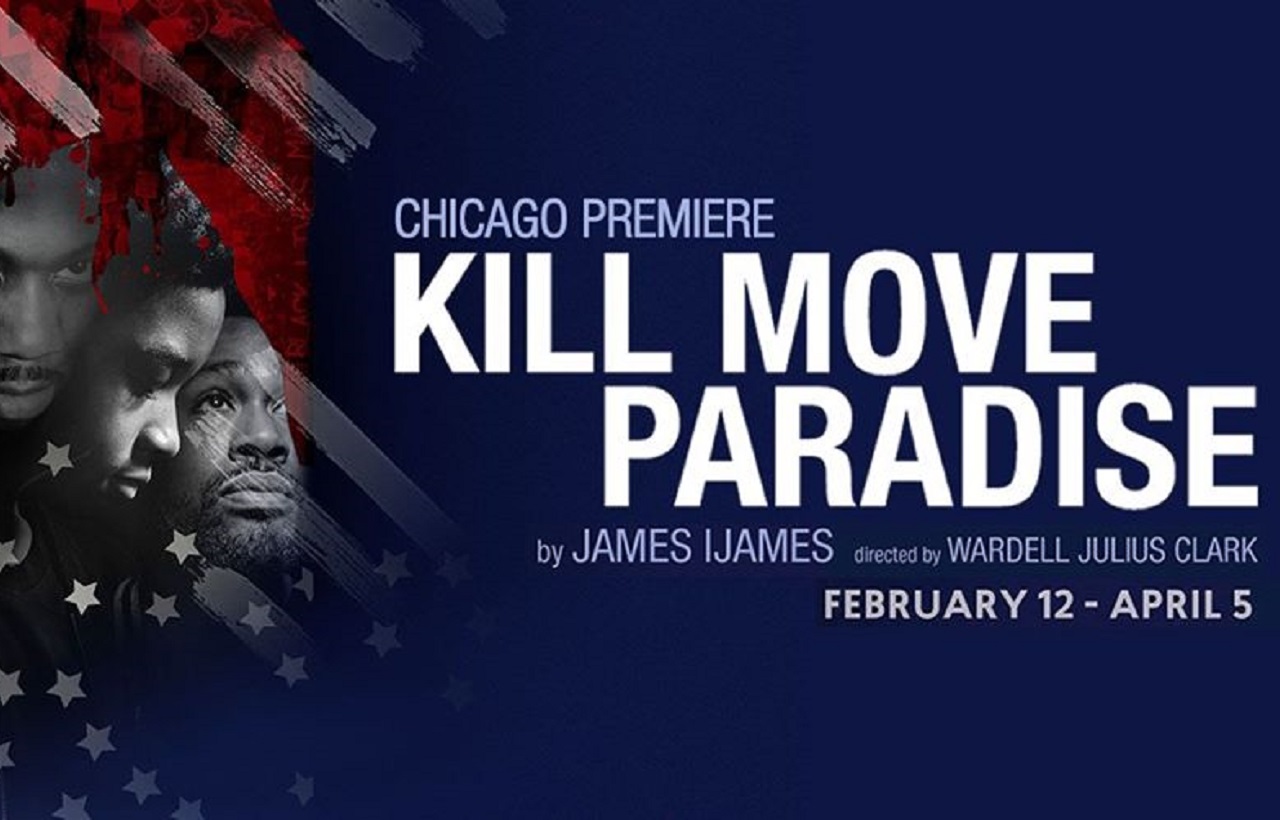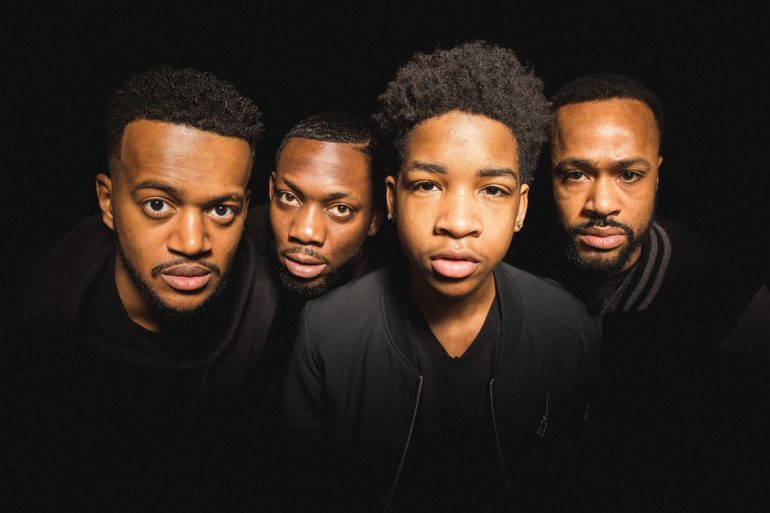In response to the growing epidemic of police shootings of Black people, Timeline Theatre presents a story that is bold and conceptual and demands the audience to witness the plight of the Black man in America.
Kill Move Paradise, written by James Ijames and directed by Wardell Julius Clark, pushes the envelope and forces white Americans to come into the light of racism and deal with it.
The fabric of society for African Americans has not been woven together equally in America’s institutions, due to the inequality of Black Americans being treated unfairly and unjustly. The systemic nature of violence against Blacks in this country comes from a long lineage of hatred, which is represented by the steadily increasing the number of deaths of Black Americans.
Are Black people being indiscriminately killed; are they being systematically targeted? The deaths have become a day to day reality that Black people face within this country today.
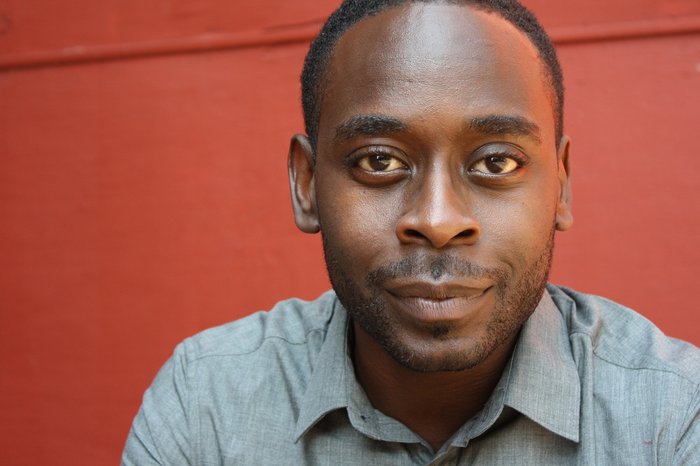
Ijames (pronounced “I’ms”, the j is silent) is one of Philadelphia’s most prolific and dynamic playwrights. This production is a story rich in poetic dialogue where Ijames wants the audience to see characters that paint a portrait of this ever-growing list of slain, unarmed Black men and women.
In Kill Move Paradise, four young Black men without warning are ripped from the world, only to become stuck in the afterlife of purgatory. The men try to find peace and balance within their new state of being.

The stage is a black and white hazardous slope with a portal at the top, which is the way station between life and death from which the characters come plummeting onto the stage. The set created by Ryan Emens (scenic designer) and Jason Lynch (lighting designer) is minimalist, so that the audience can stay focused on the performances and the text.
The four men express their rage as they debate and dialogue, trying to reconcile their fate. Revealing the scars that they have endured living in a racist country, they try to reconcile the seemingly endless racial injustice in America.
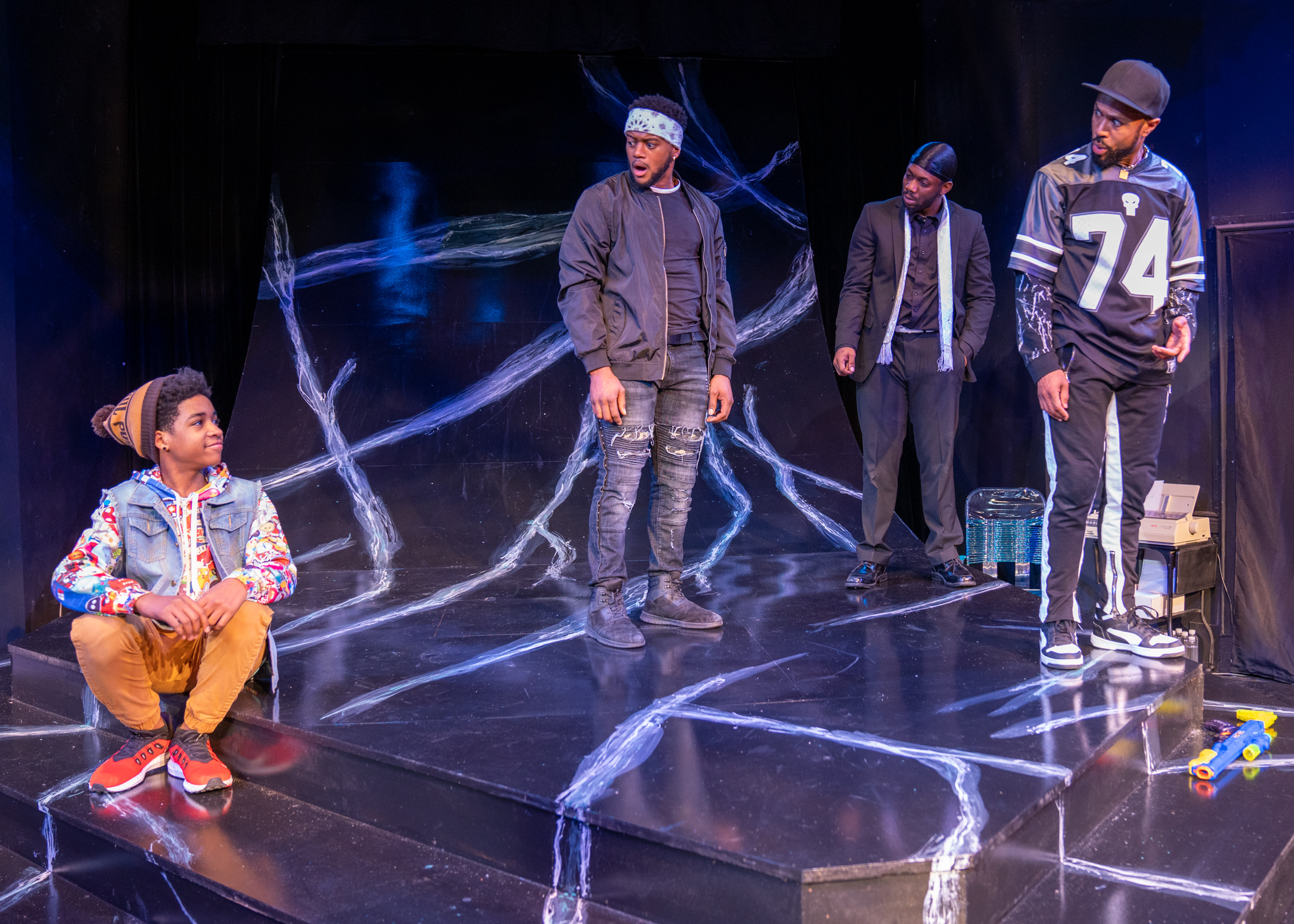
When Tiny (Trent Davis, from left) lands in their cosmic waiting room, Grif (Cage Sebastian Pierre), Isa (Kai A. Ealy), and Daz (Charles Andrew Gardner) are dismayed to see him. Photo by Lara Goetsch
In the opening scene, Isa (Kai A. Ealy), the first arrival, is disoriented but resolved to understanding his surroundings. With a printer rattling off names of soon-to-be entrants, he can see the audience around him and contemplates why he’s there.
Soon after, a dazed and confused Grif (Cage Sebastian Pierre) tumbles through, seeking answers as to why he has fallen into this new darkened paradise.
Daz (Charles Andrew Gardner) is the third man to arrive, but his entrance is through a magical pathway. As the door opens to bring him to his new resting place, he’s irate wondering how he landed in this twilight zone.
In an odd twist, Daz has brought a lawn chair along and commences to tell the others about all of the items stored inside, from the latest widescreen television to the remains of the legendary blues singer Bessie Smith.
Unapologetic Truths
The last to arrive is Tiny (Trent Davis); he is the youngest. At first, his reaction is typical until he tries to go home, remembering what his mother told him about not interacting with people he didn’t know. He tries to leave by repeatedly running up the steep slope. Unsuccessful, he finally gives up, exhausted, and struggling to breathe.
Like each before him, Tiny shares a story about how he arrived. Carrying a toy gun, he shares that he saw someone get shot. Here, Ijames alludes to the real-life shooting of 12-year-old Tamir Rice in Cleveland in 2014.
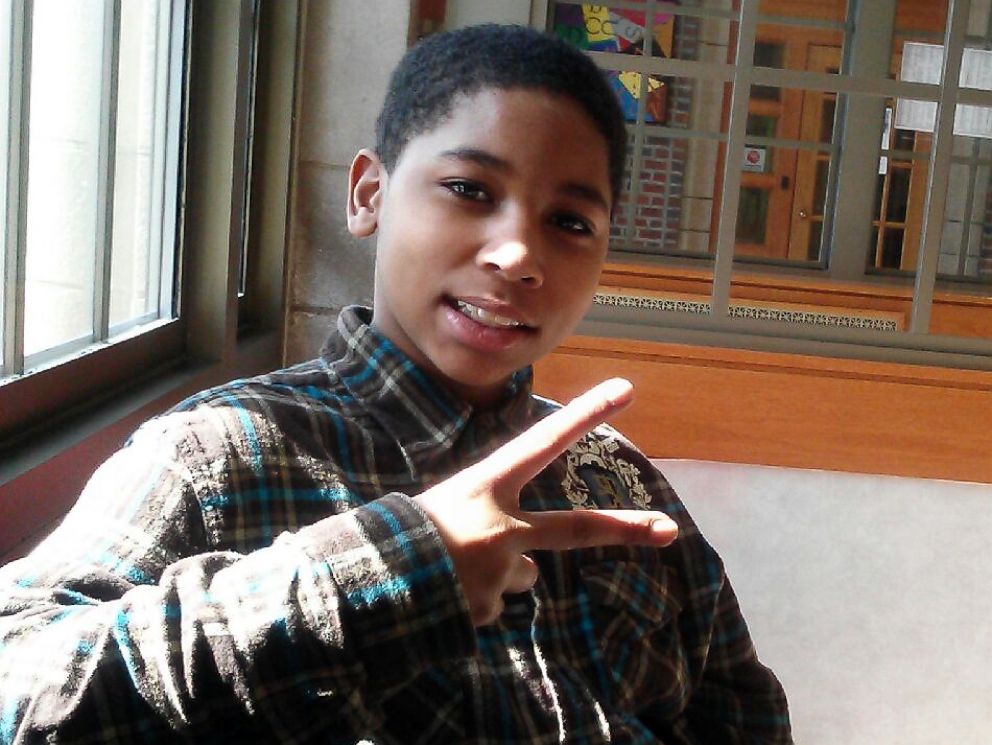
Rice had a toy gun playing with his friends in the park when a police officer shot and killed him. In this gripping scene, Tiny tells how he felt when his soul was ripped from his heart and how the blood felt gushing from his body, as he tries to deal with his new reality.
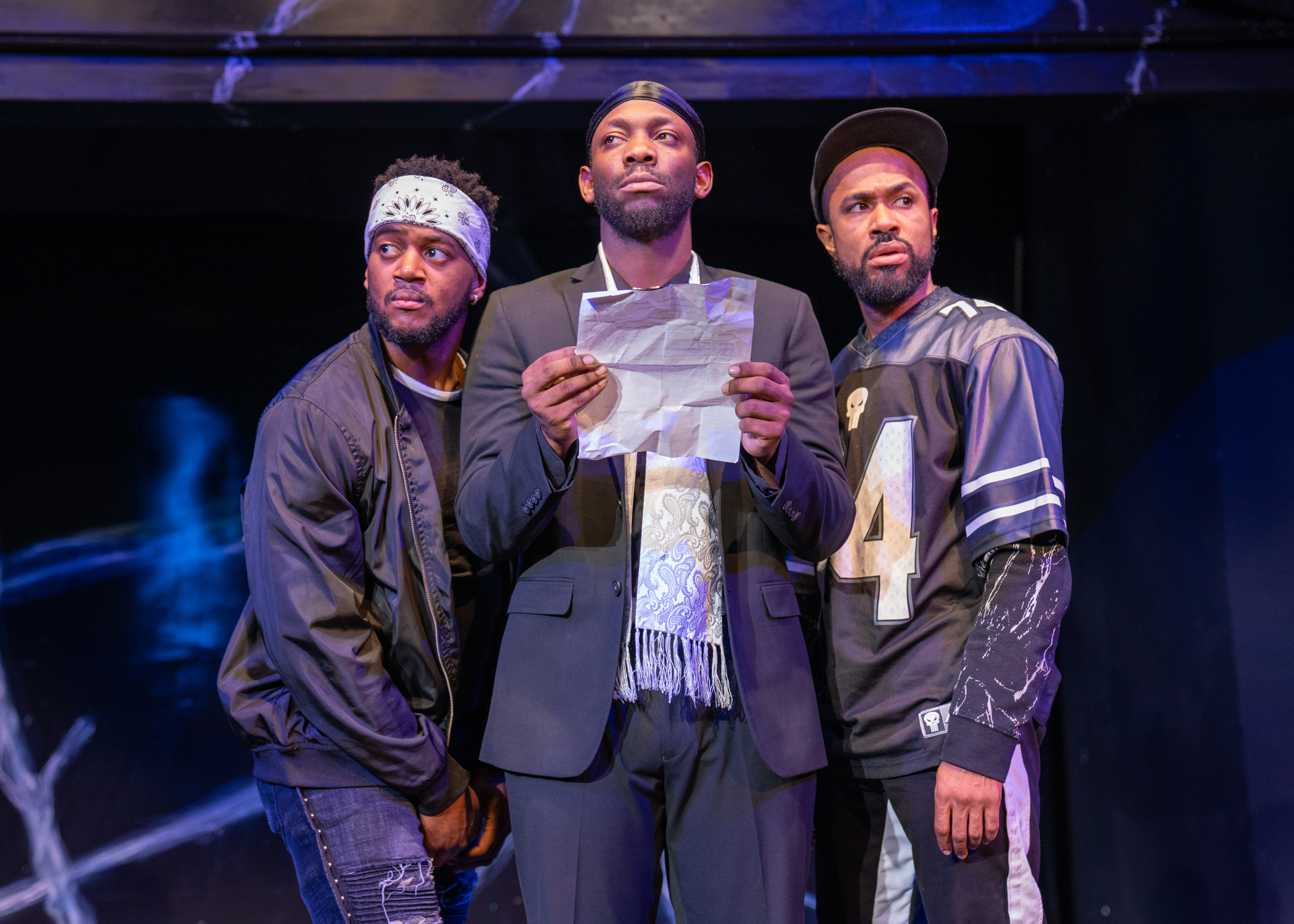
A crumpled piece of paper appears on the set, and Isa reads what seems to be instructions to the guys to prepare them for their next journey. All of them have flashbacks about the moment their lives ended.
At different times, the characters, observing the audience, asks, “What are they doing?” Grif taunts and says they like to watch. The men break out in a smooth doo-wop song, choreographed by Breon Arzell.
After they perform the opening of The Bill Cosby Show, Tiny asks the audience, “Is this what you want?” and “What are you afraid of?” This metaphor is a direct reference from Ijames, on the views and stereotypes the white audience has of Black people.

One scene that will cut you to the quick, that cuts through the heart, mind, and soul of Black America, is the reading of the names of senselessly murdered Black victims.
Names that are now forever embedded into a list of institutionalized violence include The Charleston Nine, (Tywanza Sanders, Susie Jackson, Cynthia Marie Graham Hurd, Ethel Lee Lance, DePayne Middleton-Doctor, Daniel Simmons, Sharonda Coleman Singleton, Myra Thompson, and Clementa C. Pinckney), Sandra Bland, Michael Brown, Trayvon Martin, Laquan McDonald, and Tamir Rice. These are but a few on the list of countless Black lives lost to the violent and oppressive system of white supremacists and police officers.
Wardell Julius Clark, a director known to give up the unapologetic truth, provides keen direction. He brings out the reality of the uncomfortable facts by breaking down the conceptualization of Ijames’ work.
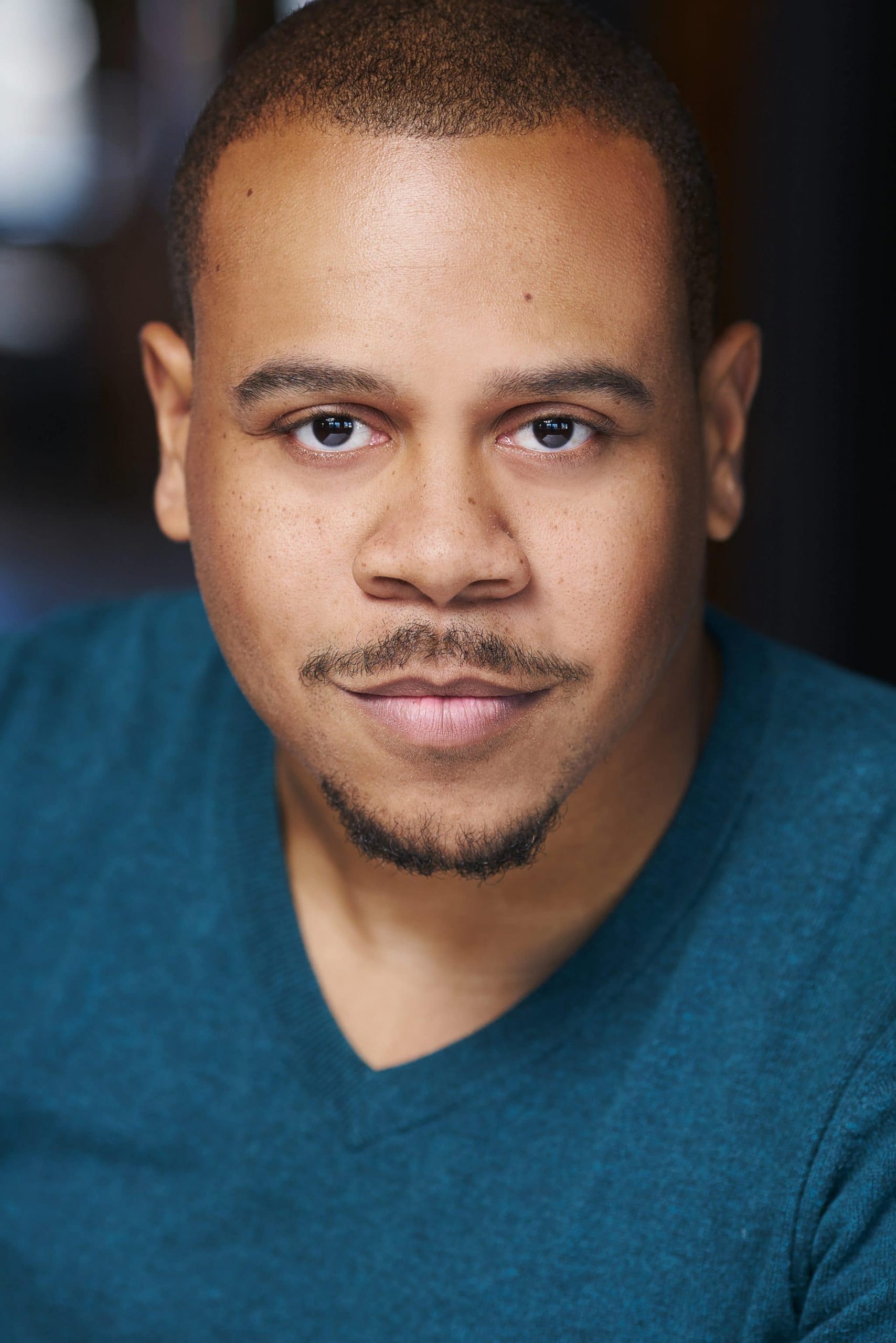
Clark pulls together a very talented group of men. Trent Davis gives an unforgettable performance as Tiny. Charles Andrew Gardner as Daz is equally strong. Kai A. Ealy as Isa and Cage Sebastian Pierre as Grif round out the ensemble with thought-provoking performances.
Kill Move Paradise is a challenging piece of work, in which Ijames attempts to show all sides of their humanity and identity as Black men and boys undertake the perils of living Black in white America. Chicago will be featuring another one of Ijames’s plays, called White, at Steppenwolf Theatre in May of this year.
Let’s Play Recommends Kill Move Paradise, but warns that this “in your face” play will make some feel uncomfortable, while others will be justly gratified that you can feel how they live every day.
Kill Move Paradise, writte by James Ijames and directed by Wardell Julius Clark, plays through April 5 at Timeline Theatre, located at 615 West Wellington. For tickets or more information, call 773/281-8463, or visit their website at https://timelinetheatre.com.
